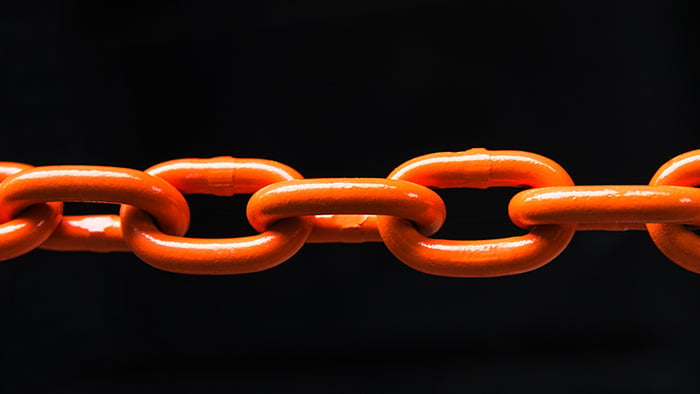- Security
- Privacy
- Performance
In the wake of several major international misinformation scandals, digital literacy is more important than ever. But what exactly is digital literacy, who has it (and who doesn’t), and what does that mean as we move into our digital futures?

Traditional literacy is often understood as the ability to read and write. That means turning symbols into sounds, sounds into words, and words into ideas — and to do the whole thing the other way round as well. When it comes to words on a page, this is a relatively straightforward process. When it comes to digital literacy, however, there is more to it.
According to the American Library Association, digital literacy is “the ability to use information and communication technologies to find, evaluate, create, and communicate information, requiring both cognitive and technical skills.” Digital literacy is not just reading and writing online. It’s also the ability to find information, use critical thinking skills to evaluate the credibility of the information, create new content, and communicate all of that.
As the definition points out, digital literacy requires an ability to use many different forms of technology, on top of the more traditional literacy and critical thinking skills.
In this article, we’ll explore the following:
What digital literacy is and how it relates to digital citizenship
Key findings from Avast’s 2021 Digital Citizenship Report
Expert commentary on the importance of digital literacy
Long before the World Health Organization declared an international health crisis in 2020, our lives were moving increasingly online. But the pandemic and the ensuing lockdowns forced us to accelerate our adoption of digital technologies. It took only about six months for Zoom to go from a relatively unknown app to a verb, used regardless of what specific video app people were actually on.
For young children, even younger digital natives, the pandemic resulted in an almost overnight transformation to online learning, with deep repercussions that are still being felt even after most countries have reopened their schools. Older digital natives (Millennials and the younger Gen X cohort) generally found themselves relying more on the technology they were using already.
Meanwhile, digital immigrants — people born before the digital revolution or those who only started accessing digital technologies as adults — had to play catch-up. They had to gain fluency quickly with unfamiliar technologies as the “real world” closed its doors around them. Practically overnight, these digital novices had to develop digital literacy, specifically technological and critical thinking skills.
In 2021, Avast partnered with YouGov and Forsa to examine digital citizenship trends around the world. Surveying more than 16 thousand internet users in 17 countries, our research sought to better understand how sentiments, trends, and global attitudes about the internet have evolved, particularly in light of the COVID-19 pandemic.
4.6 billion people, or more than half of the world's population, have access to the internet. And that number is growing rapidly, with roughly 700,000 more people coming online every day.
Not all internet users are created equal. Global internet usage trends show that not all users have fixed broadband access in their homes or offices, relying instead on mobile phones to access the internet. Age is also a significant factor in someone’s digital literacy, though digital natives and digital immigrants have their own unique literacy challenges.
People expect the internet to remain integral to their lives. Sixty percent of global respondents in our Digital Citizenship Report said the internet became more significant in their lives due to the global pandemic. One-third of respondents said they’d continue to do many activities online because they’re used to it now.

Older generations have a newfound reliance on the internet and more confidence using the technology. Across the age ranges in our report, roughly one in five people, including 18% of people over the age of 65, felt more confident using the internet, because they had to rely on it during lockdowns. Only 7% of respondents reported finding it hard.

Digital literacy remains a concern for both digital natives and digital immigrants. Although more and more people across all ages and from various backgrounds are coming online, significant digital literacy challenges remain. Older generations generally find themselves unable to learn to use the technologies as quickly and easily as they might like. And while younger generations that have grown up with these technologies can readily use them, they often need more support in understanding the long-term consequences of their digital activities. And all users seem to have a difficult time distinguishing legitimate information from misinformation.
As online fraud and scams have become more sophisticated and more widespread, all digital users need to hone their digital critical-thinking abilities. This type of critical thinking includes:
Being able to distinguish legitimate information from misinformation.
Determining who and what you should trust online.
Understanding what personal information is safe to share and what should be kept private.
Knowing how companies track your online behavior and what they do with your data.
We asked several experts in the field of digital literacy about what we can and should do to make adults more confident online. We asked broadly the same questions, but some of the answers revealed interesting differences.
By highlighting their ideas about what it means to build and maintain adult online literacy, we hope to get a better idea about what digital literacy is, what it means across different demographic groups, and how to ensure everyone can make the most of their digital lives while remaining safe and secure online.
Jaya Baloo is Avast’s Chief Information Security Officer. For more than 20 years, she’s worked in information security, with a focus on secure network architecture. Baloo sits on the advisory boards of the NL’s National Cyber Security Center, PQCrypto, and Flagship Strategic.
Catherine Knibbs is a psychotherapist, speaker, author, and consultant specializing in cyber trauma. Her academic work focuses on the digital experiences of children, while her professional work aims at helping adults safely navigate their digital lives.
Chris Price has been a technology journalist for more than 25 years. He currently writes for The Daily Telegraph and creates branded content for many of their clients, including BAE Systems, Microsoft, and Vodafone.
David Shrier is CEO of Esme Learning Solutions, which coordinates with top universities to reinvent digital education. An internationally renowned expert and advisor, Shrier is interested in ethical AI and how technology can help solve global problems.
Victoria Tomlinson is the chief executive of Next-Up – they work with employers to help employees aged 50+ in the next stage of their lives. She is chair of Women in Leeds Digital.
Across the board, our experts said the major benefit to feeling competent with technology was the ability to stay connected in an increasingly online world. They pointed out that online banking, social media, and many government services are all online, and it may soon be impossible to access these services and social spheres if you don’t have digital literacy.
Victoria Tomlinson pointed out that many people over the age of 50 struggle to see the benefits of going online and with technology generally. “I worry that they will become more disconnected over time so need to get a mindset that they ‘do’ technology, whatever that means. In particular there are so many opportunities once people retire – not least to be found and be a part of communities that will bring them social engagement and opportunities. “I mean, they might get frustrated with [not having access to things online], but I don’t think it’s something that they’re wishing that they could do. I don’t have a sense of people really wanting to do more.
However, it becomes more of a slippery slope when you start saying no to one thing (a new device or app, etc.) that doesn't change your world at all. But, eventually you’ve said no to so many things that there’s such a huge divide; now you’re embarrassed, and you don’t feel like you can come back from it. This is why it is critical to find what you are passionate about online so that the subject matter keeps you engaged while learning new technological skills. This makes learning worth the effort.“
As Jaya Baloo put it: “The drawbacks are the flip side of the benefits. If you’re not digitally proficient, you can’t fully participate in society.” The consensus was that the drawbacks included feeling isolated and lonely and not being able to do simple tasks that have largely moved online during the pandemic, like banking and shopping.
The drawbacks are the flip side of the benefits. If you’re not digitally proficient, you can’t fully participate in society.
David Shrier said that a lack of digital proficiency is costing people their jobs, too. “There is this very serious problem now emerging of folks who are my age and older (50+) who are losing their jobs because they’re not digitally skilled to keep up with things like AI and blockchain and — soon — quantum computing and the metaverse. These are all things that are starting to become mainstream technologies, and you’ve got a workforce that’s ill-equipped to grapple with it.”
Despite these effects, Tomlinson said her clients, who are usually at retirement age, still aren’t that interested in learning new digital skills. “Even now, I’m training people to use LinkedIn because it’s so important for what they’re doing. They don’t really want to use LinkedIn even. They’re not bothered, and I’m having to show them how it’s absolutely critical for this next stage.
“I’m saying: You haven’t got a website, people don’t know where you are, and you’re not on the firm’s website anymore. How do people contact you in two or three years when they’ve forgotten where you were or your details? So I think they’re kind of waking up to it, but we have to show them the benefits in the longer term.”
All our experts agreed that the key to building competency is a willingness to try, fail, and try again. Shrier made the point that narrowing down what you want to do can make it more appealing, since people won’t need to learn everything, only the things they want to.
Chris Price likened it to starting a business: “A lot of people put up barriers to new technology because they think it’s kind of difficult. And in fact, it’s really just a bit like being an entrepreneur in that you need to prepare to fail. You need to just try things, and I think a problem that a lot of adults have is that they feel a bit scared of technology. We need to overcome that lack of confidence and feeling scared to actually make mistakes, not worry about it, and get on with it.”
Here, too, our experts were in agreement. This is a societal issue and everyone needs to do their part to improve adult digital literacy. Some of our experts highlighted the work of various governments, businesses, charities, and other organizations to improve digital literacy among adults. And all ultimately agreed that without personal responsibility and a strong network of support, digital literacy won’t happen.
Shrier pointed out that many businesses could actually save money if they upskilled staff instead of letting them go. “Employers would serve themselves and the world better if they spent more on reskilling and less on laying off,” Shrier said. “Accenture is notable for reinvesting heavily. Sixty percent of the savings they got from the AI digital transformation of their own business, they invested in reskilling their own people, rather than just firing them.
“They correctly took the view that, look, people are critical to culture, and we worked really hard to get the right culture together and hire these people who fit with our culture and train them in our values, processes, and ways of working. So rather than just fire them, hire someone new, and… spend a year upskilling them to the point where they’re capable of functioning effectively, why don’t we take six months and reskill a person who already works for us into a new, higher value role? So that’s what they did.”
Here, each expert had their own view of the most important skills. Baloo had a tier system for online skills. Tier one, which most of us are on, includes “learning how to stay safe online, practicing “defensive internet use,” and understanding what happens with our data. It includes knowing how to set and create strong passwords, manage privacy settings, and determine what’s safe and not safe to click on or visit online.”
Tier two is “learning and applying online etiquette in more social spaces and figuring out how to navigate between multiple streaming services,” as well as analyzing news content and its sources. Finally, Baloo said there’s a third tier that involves better knowledge of phishing, scams, and malware, which many of us are missing out on.
Baloo’s second tier hits on Price’s most important online skill: critical thinking. Price thinks that the ability to examine why something was written and by whom, and analyzing the content for biases and bad intentions, is fundamental in a world inundated with misinformation, deep fakes, and other ways to manipulate people online.

There are also “the skills of the people actually involved in designing the technology, and that means having a moral or ethical framework along with the practical skills of designing something that will work that people can use,” Price said.
Tomlinson kept highlighting the need for people to take responsibility for finding their own solutions to their problems. And Catherine Knibbs, for her part, touched on how we frame digital education to begin with.
“There are a number of books called the ‘Dummies' Guide to,’ and I think there needs to be a change in our approach to beginners having the interest in the first place,” Knibbs said. “We need to move to a place of technology improving the lives of people, without the scary stuff [about people losing all their money in online scams] that often gets shared in mainstream media. [And we need to stop] referring to people as dummies.”
Continuing to use technology and engage new tools and services with a spirit of curiosity is the best way to maintain and even improve online literacy. Knibbs pointed out that it is crucial to stop and question your own knowledge from time to time, saying “the over-confident user can make mistakes due to complacency, and this is one trait cybercriminals look to exploit.”
But Tomlinson said that once people leave their jobs, it is hard to stay up-to-date. “Once you leave a corporate, there’s no natural process of updating…you absorb things at work without even knowing it. You’ve got new legislation and training departments making sure everyone’s up to speed and you absorb things without even knowing that that’s going on around you.”
Baloo believes engagement is key, “Stay online; stay engaged; and make conscious choices. I’m not saying dive into each new social media trend — you can make that choice for yourself. But choose the places you want to tap into digital society, just as you choose the places to tap into ‘real world’ society. The important thing is to show up and keep absorbing.”
Jaya Baloo on making everyone more digitally literate:
“What’s the Driver’s Ed of digital literacy? I’d say it includes learning how to stay safe online, practicing ‘defensive internet use,’ and understanding what happens with your data. It includes knowing how to set and manage strong passwords, keeping on top of privacy settings, and having a basic understanding of what’s safe and not safe to click on or visit online. If you can do that, you have a baseline for digital literacy. Let’s call it Digital Literacy 101.
“And just as there are different levels of common education, there are layers built on top of Digital Literacy 101. So knowing how to analyze news and sources is a good example of, let’s say, Digital Literacy 2.0. So is learning and applying online etiquette in more social spaces and figuring out how to navigate between multiple streaming services.
“As we become more digitally literate, we also have to be aware of safety. Unfortunately, I’d say the current online population isn’t doing too well in this area. Digital Literacy 3.0 might include knowledge about phishing, scams, malware — and the tools needed to protect yourself and your family from those online dangers.
“One of our goals at Avast is to move that 3.0-level stuff to 1.0. In order to be a full digital citizen, you have to be able to navigate safely online. And you can’t do it without protection and knowledge from online dangers.”
Catherine Knibbs on keeping adults up to date with new technologies:
“We need an approach that explains things and creates curiosity. In order to do this, we can educate about safety and competency and how life can be enhanced. Skills would include how to turn on a computer, opening up a smartphone for the first time, how to send text messages and make video calls, and what good security looks like.
“Lessons [would cover] social media, emails, security, where to go if you feel you need help, and guidance if you have made a mistake. We need [websites] where we can feel like we won't be judged and can ask for help. If these sites were on the main home pages of all ISP (internet service providers) providers and installed on smartphones, people would be one click away from [being able] to learn and get the skills they need.”
Chris Price on the effect of poverty on digital literacy:
“Businesses, charities, and individuals themselves all have a responsibility. And the government as well. It would make sense to have subsidized broadband for those people who can’t afford it and want access to these services…
“[We] talk about digital exclusion, but this isn’t just people who are excluded because they’re not used to the technology. It might be because they just haven’t got the money. [According to] the Ofcom report, 6% of UK homes (around 1.5 million) don’t have any access to the internet — no mobile phones, no broadband, no internet at all.
“So people — and a lot of them are elderly — are marginalized because they haven’t got the money for broadband. There’s also some areas of the country where there’s just very little coverage, not even 3G speeds, so that’s another area that disadvantages people.”
David Shrier on how AI can help plug the digital literacy gap:
“AI is an interesting technology, because it has certain paradoxes embedded in it. People usually think of AI as, you know, it’s gonna take our jobs. Robots are going to take over. But, in fact, you could also use AI to help you to be more efficient and effective at your job — even help you learn new things faster.
“At Esme Learning, for example, we’re using cognitive AI systems to help people acquire new information and then learn how to apply it more rapidly to real-world problems. That’s a sort of emergent field of this hybrid intelligence, where the human and the machine work together to do something neither could do alone.”
On digital literacy gaps in developing countries:
“There’s a digital literacy issue for people in the developing world, and COVID has really laid bare the digital divide,” Shrier said. “So my children who are school age were able to take classes on Zoom for 18 months. And even now, when there’s school lockdown because of COVID and they have to go remote, they’re getting classes on Zoom. It’s a whole sort of digital native fluency.
“But people in developing countries missed school for a year or two. And [the urgency of fixing] this lack of connectivity (one of the UNs sustainable development goals) is heightened by COVID, because it means that you lose access to education, medical care, financial institutions, and all the things you need to run your life. You even lose access to work when you don’t have digital connectivity or digital literacy.”
Victoria Tomlinson on how employers undervalue those aged 50+:
“[The construction industry] asked: how much of a priority is it to invest in advanced IT skills? And these were robotics, VR, 3D printing, and things like that. And 87% of the employers said it’s not a priority.
“The first flash in your head is, oh well, they’re over 50. It doesn’t matter. And then you think, hang on a second. These are the directors and the finance people who are doing strategy for the future and signing off on investments for the future. They’re the managers and the supervisors who should be looking at the new ways of working, bringing it in, and then being responsible for training people.
“And you suddenly think, how can they possibly make investment decisions or run departments using technology they don’t understand.”
“So I think there [needs to be] a massive wake-up call for employers. We write people off at the age of 50, and we don’t have a very high expectation of what they can do — that is what this research is showing.”
Other research Tomlinson has been looking at asks people how well their skills are recognized and used at work. As Tomlinson noted, these researchers “talked to 16 to 24-year-olds, and 75% of them said, yep, they are. Great. [While] 75% of the older generation said no, they’re not. And you just think, so you’ve got 75% of people aged 50+ at work who feel that their skills aren’t recognized or used.
“I think there’s a real switch, and that is what I’m trying to campaign on. Getting us to change our expectations and investment in our older generation. It’s ridiculous what’s happening, but it’s quite a big task. We’re [well] on the back foot of all of this and there’s a massive mental shift for everybody, really, to do.”
We are in the middle of a transformation that will be as profoundly painful as the first Industrial Revolution was. The current trends in digital literacy highlight the need for confidence, eagerness, and the critical importance of online safety. But no single approach can ensure that every person feels comfortable and confident online. Solutions to closing the digital literacy gap vary, and they all need to reflect the unique needs of targeted groups.
Even if we could solve digital literacy immediately, new technologies will inevitably emerge, bringing with them unforeseen challenges. This is an area that throws up new questions for every answer we try to give. But, as all the experts we spoke to point out, there’s a lot to remain hopeful about. We need to stay focused on the issue and create new solutions to the challenge of how digital literacy impacts different people in different societies around the world.
Install free Avast One to help protect your personal data, block threats and scams, and stay private online.
Install free Avast One to help protect your personal data, block threats and scams, and stay private online.
Download free Avast One to help protect your personal data, block threats and scams, and stay private online.
Download free Avast One to help protect your personal data, block threats and scams, and stay private online.












Get comprehensive security and privacy for your phone with Avast One
Avast One
Free installGet comprehensive security and privacy for your iPhone with Avast One
Avast One
Free install